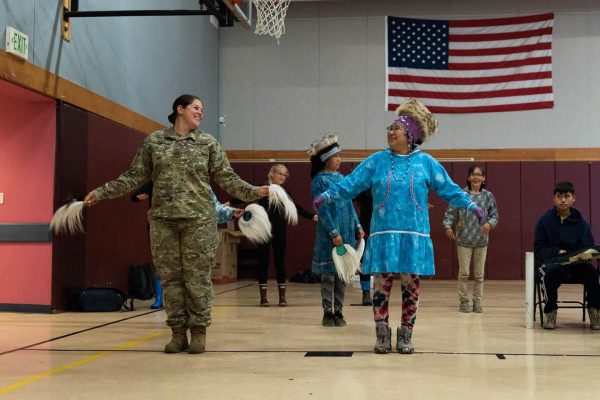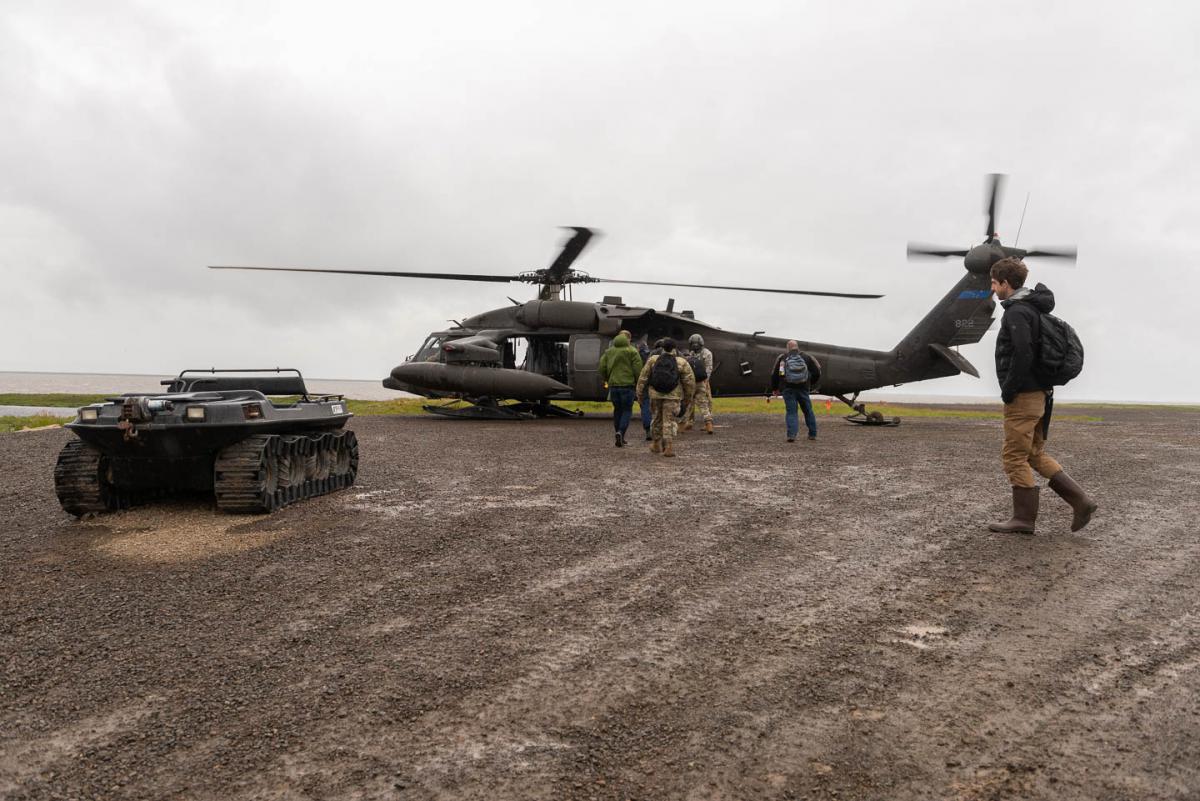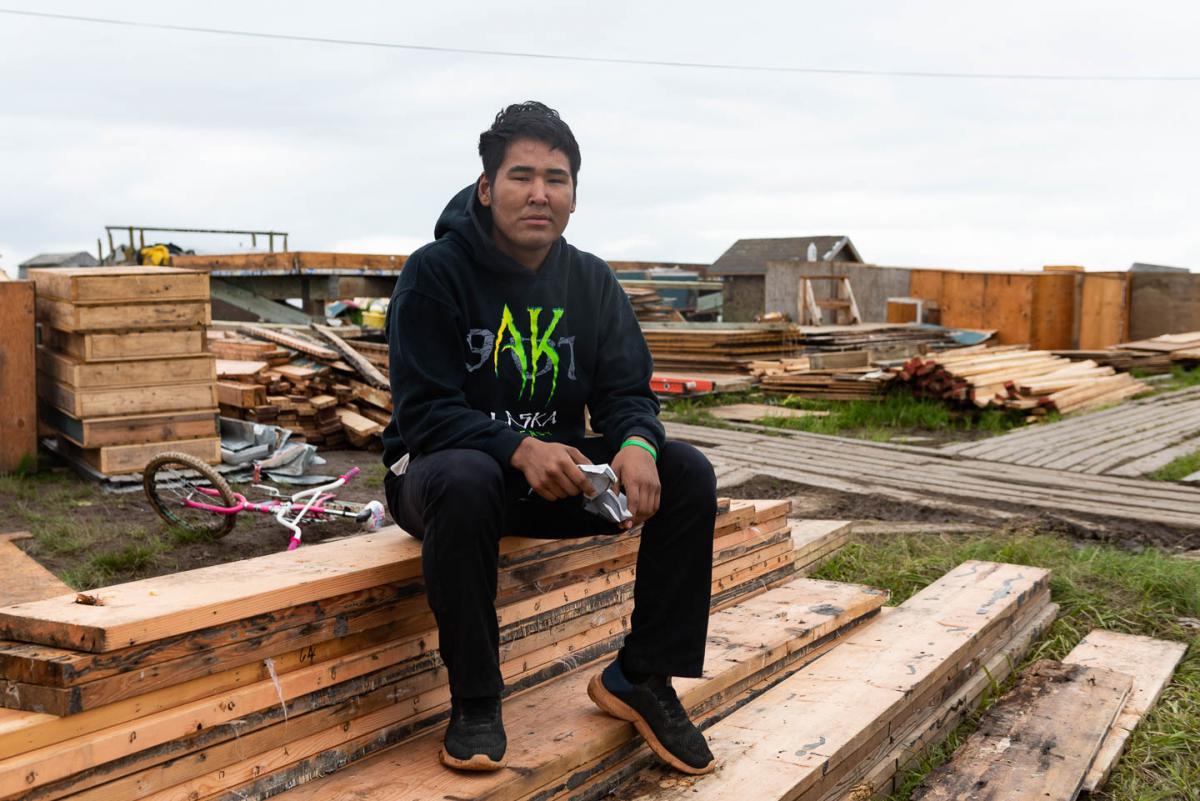
A Black Hawk helicopter full of military officers drops in on Mertarvik to check on the progress of the new village. In a single summer, reserve forces will have built a mile of road, a landfill, four houses, and a heavy equipment shop.
“That’s the military’s contribution to our community. And that’s huge! That’s huge!” exclaimed Newtok Village Council’s tribal administrator, Andrew John.
The military is here as part of the Innovative Readiness Training, which joins together forces from the Army, Air Force, and Navy. IRT Program Manager Morgan Shepard-Vierra says that the primary goal is to allow engineers to practice building infrastructure in extreme, remote conditions, but that’s not the only objective.

“While we bill ourselves as training, we describe this as a win-win for both military units and our community partners,” Shepard-Vierra said.
The military has estimated their total labor costs at $1.6 million. That’s money that Newtok can spend on other parts of the relocation, estimated to cost over $100 million.
Denali Commission Project Manager Don Antrobus helps out other villages looking to relocate due to erosion. He says that they’re taking notice.
“They’ll see what’s been accomplished out there in Newtok utilizing IRT labor and see an opportunity to repeat the same thing in their communities,” Antrobus said.
To welcome the visiting officers, Newtok residents performed traditional Yup’ik dancing. After a few songs, Capt. Alyson White, the officer in charge at Mertarvik, got up.
“Don’t give me a hard one like you do sometimes,” White said as she was handed tegumiak, a pair of dance fans.
White says that she practices every two weeks with Newtok residents, and it shows.
“I think getting to know the people that we are actually building this for makes it more personal to us on the project,” White said. “Some of them actually work over in Mertarvik, so we get to work side by side with them as well.”
Bosco Charles is one of the Newtok residents working on the new site.
“They’re hard workers, the IRT guys. We’re really thankful for them that they’re here,” Charles said.
The IRT mission will finish up at the end of August, but the Mertarvik project will go on past that and those still working there will be people like Charles.

“This is for my people. This is for the village of Newtok where I’m from. That’s really amazing. It’s one of the greatest feelings,” Charles said.
He wasn’t always excited about moving to the new village.
“I don’t know, it just didn’t seem real,” Charles said.
But with help from the military, he’s already seen 13 homes go up and now it’s real. Charles now says that he’s excited to start over. He called it a new beginning.




